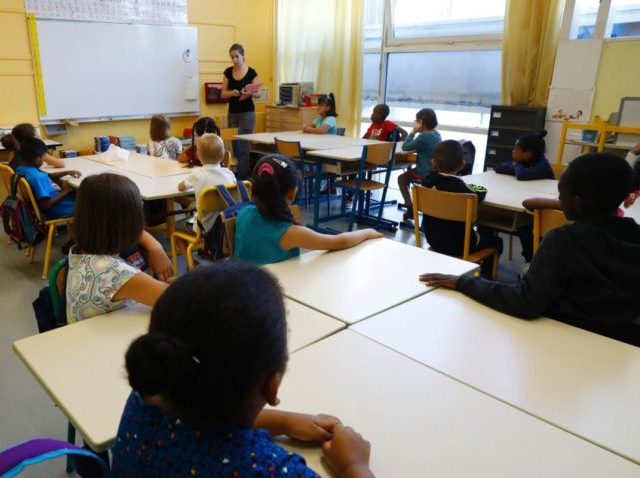More than half of the nation’s prospective elementary school teachers fail their licensure exam on the first attempt, according to a report.
“[A]n alarming number of candidates fail their licensing tests, far surpassing the failure rate for other professions’ entry tests, bar exams, and boards,” says a new report released in February by the National Council on Teacher Quality (NCTQ), which concerns itself primarily with “diversity goals.”
New from NCTQ: Elementary teachers are failing their professional licensing tests in extraordinarily high numbers. We found they're not getting the preparation they need. Read more on the crisis in A Fair Chance: https://t.co/Rkr3zCtFeN
— NCTQ (@NCTQ) February 27, 2019
The report’s executive summary continues:
The fact that more candidates fail than pass on their first attempt, and a quarter are never able to earn a passing score, raises serious concerns—especially regarding the effect this failure has on diversity goals. While many factors going back to candidates’ earliest years of education may explain this phenomenon, higher education institutions are in the best position to alter this untenable outcome.
Even after multiple attempts at passing the most widely used licensure tests for teachers, NCTQ’s authors state only 38 percent of aspiring black teachers and 57 percent of prospective Hispanic teachers achieve success, compared to 75 percent of white teacher candidates.
To remedy this situation, while NCTQ suggests a re-evaluation of the alignment of the licensure tests with the “curricular expectations” of states and local school districts for elementary schools, the report’s authors assert the nation’s higher education institutions are ultimately to blame for the dismal outcomes for failing to require essential coursework for education majors.
NCTQ continues:
[E]ven practicing teachers admit to struggling with the subject knowledge they are asked to teach. In surveys conducted by the U.S. Department of Education, two thirds of new teachers admit to not having a strong grasp of elementary subjects. Tests aside, too many teachers are left to learn on the fly, often barely covering content or omitting it altogether in their classrooms. Given that students’ own ability to understand what they read depends on the breadth of the content knowledge to which they have been exposed, teachers’ grasp of content knowledge is more than a matter of secondary importance. It is a top priority.
NCTQ’s analysis of elementary education programs reveals most do not require a literature course and only half require a children’s literature course.
The council observes that “only one in four programs covers the breadth of mathematics content necessary for elementary grades,” and “one in three programs does not require a history or geography course aligned with the needs of elementary teachers.”
In addition, NCTQ finds, “Two in three programs do not require a single science course that could be considered aligned.”
The council says a major concern is that education undergraduates are “often allowed to select general education courses” without counseling about the courses that will “build their core knowledge” for the teaching of elementary school children.
NCTQ points out that courses offered to education majors, such as “Sex and Western Society,” “Herbal Medicines and Functional Food,” “America in the 1960s,” or “Chemistry and Art,” cover content that is not found on an elementary licensure test.
“They’ll let them take a course called chemistry and art restoration, that’s never going to come up in the course of teaching 3rd grade or 4th grade." @nctqkate talked to @wptv and @KatieLaGrone about our new report, A Fair Chance. See the interview here: https://t.co/yfxLAtZVZg
— NCTQ (@NCTQ) March 7, 2019
Worse yet, the council observes that, at the graduate level, “[n]o programs require adequate coverage of all four subject areas: English language arts, social studies, science, and elementary mathematics.”
Education Dive reports some researchers have questioned NCTQ’s findings and methods in the past, and suggests “some in the higher education community don’t consider the NCTQ a good judge of the quality of teacher preparation programs.”

COMMENTS
Please let us know if you're having issues with commenting.